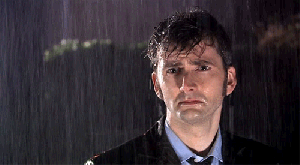Well, I’m off to an unbelievably slow start with German Literature Month, hosted by Caroline and Lizzy, given that we’re more than halfway through the month and this is my first post. I’m hoping I’ll get some more posts in before the month is out, but clearly myself and productivity are not friends right now.
Image from here
Firstly, The Glass Bees (Gläserne Bienen, 1957) by Ernst Junger (trans. Louise Bogan & Elizabeth Mayer, NYRB, 2000), which was frankly, completely terrifying. Generally I’m not one for sci-fi/speculative fiction and now I know why, because they scare me silly. Written in the 1950s, the story is set in an undisclosed time and place sometime in future. At the time of publication, my edition tells me it was dismissed as irrelevant. To which I can only respond:
And commend those critics for their optimism. See if you can find any contemporary parallels: a powerful and ruthless business man has developed advanced technology and uses this to assert control of society through media and entertainment. Now I think about it, a more appropriate David Tennant gif would have been:
The tale is narrated by Richard, a war veteran and ambiguous character, who is considering being employed by the Donald Trump/Rupert Murdoch hybrid business man Zapparoni as a security chief/spy on his workers:
“The people employed by Zapparoni were an extremely difficult lot. Engaged in a most peculiar kind of work – the handling of minute and often extremely intricate objects – they gradually developed an eccentric, over-scrupulous behaviour, and they developed personalities which took offense at motes in a sunbeam.”
Zapparoni uses microtechnology but he has also developed automatons who are more than human. There are those that look like him and enable him to be in more than one place at once, and those who are used to promote an idealised form through film and media:
“Thus one might say that these figures did not simply imitate the human form but carried it beyond its possibilities and dimensions…the movements and expressions indicated that nature had been studied and surpassed.”
Likewise, the titular bees are micro-robots much more efficient at collecting nectar than actual bees. This unstable reality is part of the novel’s overall feel of not being able to trust what you see and struggling to understand feelings that are evoked by such odd circumstances. Richard is a cavalry soldier, and as such is an anachronism, harking back to days of animal and human power when the world has moved on. He is virtually unemployable, which is what leads him to Zapparoni in the first place, wholly aware that if he takes the job, at some point he is likely to meet with an ‘accident’.
Events at his job interview are equally discombobulating, with the elderly Zapparoni living in surprisingly old-fashioned surroundings and sending Richard into the garden for a gruesome test. I won’t say much more for fear of spoilers as The Glass Bees is a short (209 pages in my edition), tightly written novel set over 2 days. It packs a lot into such a short space though, as Richard’s immediate experiences and reminiscences give much food for thought on the nature of human beings, their relationship with technology, how power is wielded, where morality lies… big questions which mean The Glass Bees certainly leads itself to re-reading.
It is not a bleak novel; there is an enduring faith in humankind:
“I came to recognise that one single human being, comprehended in his depth, who gives generously from the treasures of his heart, bestows on us more riches than Caesar or Alexander could ever conquer. Here is our kingdom, the best of monarchies, the best republic. Here is our garden, our happiness.”
However, this faith is constantly under assault and The Glass Bees acts as a stark warning on the human price of technological progress:
“Human perfection and technical perfection are incompatible. If we strive for one, we must sacrifice the other; there is, in any case, a parting of the ways. .. Technical perfection strives towards the calculable, human perfection towards the incalculable.”
I’m not sure we’ve really learnt the lessons The Glass Bees presents. As I said at the start, terrifying.
From a speculative future to a novel that shows the fallout of the recent past, The Emigrants (Die Ausgewanderten, 1992) by WG Sebald (trans. Michael Hulse, Harvill Press, 1996). The Emigrants is familiar territory for readers of Sebald, dealing with displacement, memory and loss with a deceptively simple voice and a narrative that blurs the lines between fiction and autobiography, complete with illustrative photographs. Narrated by an emigrant who comes to England and settles in Manchester, its four sections tell the stories of different emigrants with whom he comes into contact. The first section, ‘Dr Henry Selwyn’ tells of his eccentric landlord.
“Dr Selwyn liked to be out of doors, and especially in a flint-built hermitage in a remote corner of the garden, which he called his folly and which he had furnished with the essentials. But one morning just a week or so after we had moved in, I saw him standing at an open window of one of his rooms on the west side of the house. He had his spectacles on and was wearing a tartan dressing gown and a white neckerchief. He was aiming a gun with two inordinately long barrels up into the blue.”
As this passage captures, the short section (around 20 pages) is both whimsical and yet with an underlying sense of something much more serious. It shows how, following the second world war, what we see on the surface belies the enduring damage and pain that persists.
The second section ‘Paul Bereytyer’ begins with a suicide. The narrator’s childhood teacher has lain on the train tracks and the narrator pieces together his past in an attempt to understand why. Paul is a quarter Jewish and during the war “out of blind rage or even a sort of perversion” he returns to Berlin and gets called up into the artillery. What is truly haunting in this section is that the clues to his end are there all along for those who knew him:
“Railways had always meant a great deal to him – perhaps he felt they were headed for death. Timetables and directories, all the logistics of the railways, had at times been an obsession with him… I thought of the stations, tracks, goods depots and signal boxes that Paul had so often drawn on the blackboard and which we had to copy into our exercise books as carefully as we could.”
The third section tells the story of the narrator’s Great-Uncle Adelwarth who travels around the world but ultimately ends up in an institution. In the final section, ‘Max Ferber’, an artist tells the narrator the story of his mother and the impact of the holocaust on his family.
“Memory…makes ones head heavy and giddy, as if one were not looking back down the receding perspectives of time but rather down on the earth from a great height, from one of those towers whose tops are lost to view in the clouds.”
The Emigrants is an incredible novel. Sebald writes with simplicity yet great beauty, building a picture of enduring war wounds. He demonstrates how the legacy of conflict is still to be felt, if only we open our eyes to see it.
“I now sometimes feel that at that moment I beheld an image of death [it] lasted only a very short time, and passed over me like the shadow of a bird in flight.”
To end, the trailer for the most expensive German TV series ever made, apparently. It’s set during the Weimar Republic, I’m 4 episodes in and enjoying it so far (contains scenes of drug taking and sauciness):





You’ve used one of my favourite words. Have you come across recombobulate? I read it just the other day and thought it might be a joke but I’m delighted to find it isn’t. Dystopia isn’t my favourite theme but I’m quite attracted to The Glass Bees.
LikeLiked by 1 person
I hadn’t heard of recombulate but I’m definitely going to use it now! Discombobulate is a great word, it really captures the feeling.
The Glass Bees is set in a recognisable reality (probably even more so now than when it was first written, unfortunately) so even though its dystopian it’s not toooo dystopian 😉
LikeLiked by 1 person
The Glass Bees sounds interesting, I like the quotes you shared, though I’m not sure I can take any more dwelling on the horrors of a possible future. The current news is more than I can take at the moment!
I agree with you on The Emigrants, it is an incredible book. Quite unlike anything else I’ve read, though I had to read it a few times to fully appreciate it. I loved the little nods to Nabokov as the butterfly catcher that appear in the different stories, and also the guide who died frozen in the mountains and is discovered years later as the glacier melts. It is so rich with fleeting images like this, and a beautiful way to explore memory and loss. I haven’t read any of Sebald’s other work, but they’re definitely on my list for the future.
LikeLiked by 1 person
I know what you mean – the news is definitely a hellish dystopian vision in itself!
I can see The Emigrants would definitely lend itself to re-reading. As you say, it’s full of rich detail and I imagine different things leap out at you each time.
The first Sebald I read was Austerlitz, it’s wonderful and if you like The Emigrants I think you’ll really like it.
LikeLiked by 1 person
Sebald’s Emigrants is one of my favourite books – well, it would be, wouldn’t it? I think he captures so well the sense that however much we may want to run and hide and start afresh, we are always a product of our culture as well, and we are judged more by that than as an individual.
LikeLiked by 1 person
Yes, we take ourselves with us wherever we go! That’s very interesting about being judged by our culture. It is so much a part of who we are, and yet we are all so different too.
I thought Sebald built up a picture very sensitively. Definitely worthy of being one of your favourite books!
LikeLike
Fascinating stuff (and thank you for the Tennant gifs!) I’ve still to break my Sebald duck, but I *have* read Junger (On The Marble Cliffs) which was a strange and fascinating sort of allegory. I shall obviously have to explore his work further.
LikeLiked by 1 person
I think you’d enjoy Sebald Karen, he’s a very delicate but incisive writer.
This is the first Junger I’ve read, I’d be interested to read On the Marble Cliffs, his vision is compelling (and scary)!
LikeLiked by 1 person
I love that Mann quotation–in fact, it’s one I have posted on the walls of the writing center where I work. And yes, the second Tennant gif is more appropriate.
LikeLiked by 1 person
It’s a great quote! Sadly, yes, the second gif is a more accurate reflection 😦
LikeLike
I like the sound of The Glass Bees. Frankly I don’t understand why Doctor Who hasn’t sorted out the current world – he must be aware we need him! The thing is, the sloth thing only works if you’re as cute as they are – are you?
LikeLiked by 1 person
I know, what’s going on? Maybe TheDoctor’s too busy regenerating at the moment and she’ll get to it later?
Sadly, I’m no where near as cute as the sloths. Shhh – don’t tell anyone!
LikeLiked by 1 person
I love that quote, I used it the other day to comfort someone struggling over an essay, bashing things out effortlessly would be grand and all, but its not the norm, and with my own work would cause me to be suspicious!
I really want to see Babylon Berlin! Alas, I don’t have Sky, only ‘council telly’ as my friend calls Freeview, however, it hear it might be coming to the BBC or Netflix. Fingers crossed!
LikeLiked by 1 person
Absolutely! I’m an incredibly slow writer, although I do find I spend less time editing than a lot of people, so maybe in balances out. Then again, I really should spend more time editing…
I’m actually really embarassed that I have Sky & am therefore giving money to Rupert Murdoch. I would far rather have council telly, but my mother lives with me and one of the few things she insists on is a million satellite channels so she can watch every single programme about Alaska. I keep hoping some sort of cable alternative will arrive in my neighbourhood and therefore mediate between my qualms and her obsession with the 49th state! And it does mean I get to watch Babylon Berlin 😉
LikeLiked by 1 person
A wonderful post. Thanks for participating. Maybe you had a slow start but your choices are wonderful. I love Juenger’s writing. He’s one of the greatest stylists in German. I started The Emigrants but it was the wrong moment to read this on. I noticed how outstanding it wS and didn’t want to read it without giving it my full attention.
LikeLiked by 2 people
Thanks Caroline, and thanks to you & Lizzy for organising German Literature month!
I’m definitely keen to read more Junger now, The Glass Bees was so impressive.
You’re so right, sometimes its not the right moment for even the best-written novels. The Emigrants repays careful reading – I want to re-read it for sure – so I hope you enjoy it when the time is right 🙂
LikeLike
Excuse me…where is the tomato ketchup. You promised sauciness……
LikeLiked by 1 person
😀 Very sorry to disappoint!
LikeLike
German Literature Month, that’s really neat. I thought Er ist wieder da (Look Who’s Back) was a really interesting read!
LikeLiked by 1 person
Yes, I enjoyed that too. Plenty to say about modern media and how easily it can be manipulated!
LikeLike
Not content with adding two ‘must reads’ to my list, you’ve made me want sky so I can watch more telly! *sigh*
LikeLiked by 1 person
Excellent! I’m so glad when I can drag people to my level and add to their TBRs, making me feel better about my spiralling numbers of books. My work here is done 😉
LikeLiked by 1 person
My TBR is now so full of German books. I love the sound of ‘The Glass Bees’ too. Thank you for this lovely post. 🙂
LikeLiked by 1 person
Thanks Deepika, I hope you enjoy The Glass Bees if you get to it 🙂
LikeLiked by 1 person
Pingback: German Literature Month VII: Author Index | Lizzy's Literary Life